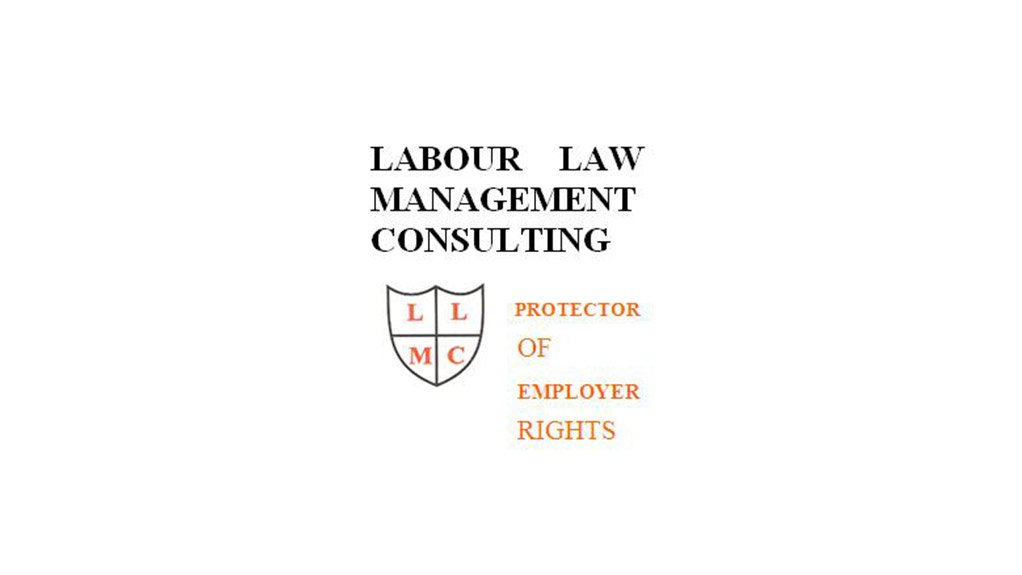Due to the need to speed up the resolution of labour disputes the Labour Relations Act (LRA) provides for a ‘short-cut’ process called con-arb which stands for conciliation-arbitration. Conciliation is the process whereby a CCMA or bargaining council (BC) mediator tries to assist the employer and employee to reach an out-of-court agreement. It is a peace-making exercise that is intended to end in a settlement agreement and NOT in an award (judgement).
Arbitration, on the other hand, is a judicial-type process that usually occurs if a conciliated settlement is not achieved. That is, it is Step 2 in the process if Step 1 (conciliation) fails to resolve the matter. At arbitration the employer and employee do not negotiate an agreement. Instead, they bring and present evidence as in any court case. Then the arbitrator, after hearing all the evidence, makes a finding as to which party was in the wrong.
Normally, if the conciliation meeting fails to produce a settlement and the employee applies for arbitration, the arbitration hearing is scheduled for several weeks or months later.
Con-arb is when, instead of scheduling the arbitration for a later date, it is held on the same day, the very MINUTE that conciliation fails! The employee is not required to apply for arbitration; it occurs automatically the very moment the conciliator declares that conciliation has failed. Thus, the parties have no time after the conciliation meeting to prepare their evidence and arguments for the arbitration!
Con-arb is not compulsory for all types of dispute. It is compulsory when the dispute concerns:
• The dismissal of an employee for any reason relating to probation
• Any unfair labour practice relating to probation.
In addition, if neither party objects to con-arb then con-arb will take place even if probation is not involved, provided that the dispute concerns:
• A non-strike dismissal for conduct or capacity
• Constructive dismissal
• The employer’s failure to substantially preserve the employment conditions of employees when transferring them in terms of section 197 of the LRA
• An employee who does not know the reason for the dismissal
• An unfair labour practice.
Therefore, on receiving any con-arb notice a party who does not want con-arb must lodge a formal objection at least 7 days in advance of the set hearing date. However, such an objection will not be valid if the dispute concerns an unfair dismissal or unfair labour practice relating to probation.
As mentioned, the purpose of con-arb is to cut down drastically the time period between conciliation and arbitration. It could also have the effect of forcing the parties to make every effort in trying to settle the matter at conciliation. This is because they are aware of the arbitration that will take place immediately conciliation fails. This ‘pressure’ to settle will only have an effect on an employer or employee who believes he/she could lose the case. That is, if you know your case is weak or if you are unsure whether you have prepared properly for the arbitration you will be under pressure to settle at conciliation. Such a situation of pressure could cost you a lot of money.
It is therefore essential for employers and employees who receive con-arb notices to:
• Realise straight away that it is a con-arb that has been scheduled
• Understand what con-arb means for them in practice
• Begin immediately with preparations for the con-arb.
This is particularly so because the parties seldom get more than 14 days advance notice of a con-arb.
Especially those parties who have been through the conventional CCMA or BC process previously may fail to realise that a con-arb is very different to a conciliation meeting. Failing to prepare for this reason or for any other reason could be very costly.
The parties need to enter into intensive preparations the moment they receive a con-arb notification because:
• 14 days is very little for purposes of preparation
• the parties have to prepare for both conciliation and for arbitration
• preparation for arbitration in particular takes a great deal of time.
Included in these preparations should be:
• The preparation of the witnesses of truthful, relevant and accurate testimonies
• Collecting and preparing documentary and other evidence
• Responses to anticipated evidence that the opposing party could bring
• Preparation of case arguments and case law.
To attend our 20 June 2014 Cape Town seminar on WALKING THE LABOUR LAW TIGHTROPE please contact ronni@labourlawadvice.co.za or 0845217492.
Written by Ivan Israelstam, CE of Labour Law Management Consulting. He may be contacted on (011) 888-7944 or 0828522973 or on e-mail address: ivan@labourlawadvice.co.za. Go to: www.labourlawadvice.co.za.
EMAIL THIS ARTICLE SAVE THIS ARTICLE
To subscribe email subscriptions@creamermedia.co.za or click here
To advertise email advertising@creamermedia.co.za or click here











